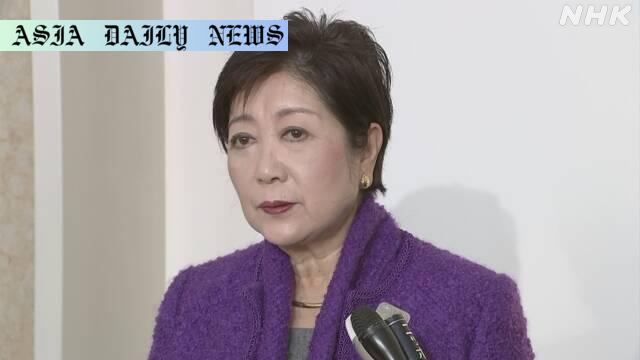Cooperation: Governors of Tokyo and Bangkok sign a communique to tackle climate change, aging populations, and tourism growth.
Governors of Tokyo and Bangkok agree to cooperate on shared challenges.
Focus areas include climate change, disaster prep, and aging populations.
Efforts will also boost tourism and mutual knowledge exchange.

Introduction: A Strategic Partnership
The governors of Tokyo and Bangkok have recently cemented an alliance aimed at facing mutual urban challenges. This partnership, signified by a signed joint communique, underscores a shared commitment to addressing pressing issues such as climate change-related disasters, rapid societal aging, and boosting tourism. The agreement marks an important milestone in the bilateral cooperation of two of Asia’s key metropolitan powerhouses.
Collaborating to Combat Climate Change
One of the central tenets of this agreement focuses on tackling climate change, which continues to pose significant risks for Tokyo and Bangkok. Both cities are prone to heavy rainfall, flooding, and other adverse weather events exacerbated by global warming. Through shared initiatives, the cities aim to exchange insights and strategies that will improve infrastructure resilience and disaster readiness. This collaboration promises valuable lessons for other global cities facing similar threats.
Addressing Aging Populations and Declining Birthrates
In addition to climate concerns, the partnership will target the social challenges posed by rapidly aging populations and low birthrates. Tokyo, as a technologically advanced metropolis, has implemented innovative systems for elder care, which Bangkok can study and adapt within its own context. Similarly, collaborative dialogues will explore solutions for boosting birthrates and supporting family-friendly policies.
Boosting Tourism through Mutual Promotion
As the global tourism industry rebounds after the pandemic, both cities are keen to leverage this partnership to attract more visitors. Strategies include joint marketing campaigns, streamlined tourism experiences, and information-sharing on cultural promotion techniques. By working together, Tokyo and Bangkok hope to strengthen their appeal as vibrant destinations rich in history, entertainment, and innovation.
Exchanging Knowledge and Expertise
The signed communique also emphasizes fostering mutual learning and intensive knowledge-sharing. Both governors expressed optimism about the benefits of exchanging urban planning best practices, technological innovations, and management strategies. This collaboration is expected to create stronger frameworks for addressing ongoing and emerging urban challenges.
Outlook: A Model for International Urban Collaboration
This partnership between Tokyo and Bangkok not only paves the way for solutions to their local challenges but also sets a precedent for international cooperation. Developing nations and advanced economies alike can draw inspiration from this commitment to shared problem-solving. As noted by Tokyo Governor Koike Yuriko, this collaboration seeks to generate tangible benefits that will be felt by the residents of both cities.
Conclusion: A Step Forward for Regional Partnerships
The growing relationship between Tokyo and Bangkok highlights the importance of mutual support in a globalized world. By tackling similar issues together, they stand as a testament to how partnerships can drive progress. The focus on climate resiliency, aging societies, and tourism development proves that urban challenges, while daunting, are surmountable with cooperation and shared purpose.
Commentary
A Promising Collaboration
The cooperation between Tokyo and Bangkok symbolizes the power of international partnerships in addressing urban challenges. By acknowledging their shared vulnerabilities, particularly in the context of climate change, the leadership in both cities has taken a bold step towards sustainability and resilience. This joint communique demonstrates foresight and a pragmatic approach to global problems that transcend borders.
A Model for Global Challenges
What makes this collaboration particularly noteworthy is its comprehensive scope, extending beyond immediate climate concerns to socio-economic issues like aging populations and tourism growth. Both cities are major hubs in their respective regions, and their shared solutions could very well inspire similar initiatives in other parts of the world. The willingness to share knowledge and expertise sets a high standard for meaningful global partnerships.
Challenges Ahead
While the agreement marks a significant step forward, the true challenge lies in its implementation. Translating joint initiatives into tangible results will require consistent communication, resource sharing, and adaptability to unforeseen circumstances. Both Tokyo and Bangkok will need to ensure that their efforts are inclusive and directly benefit their residents, creating a ripple effect that reinforces the value of such partnerships.
Conclusion
In a world grappling with numerous complex issues, the cooperation between Tokyo and Bangkok is an example of how innovative, regionally specific solutions can be achieved through collaboration. This partnership embodies the spirit of unity and progress, offering a beacon of hope and a model for urban governance worldwide.


